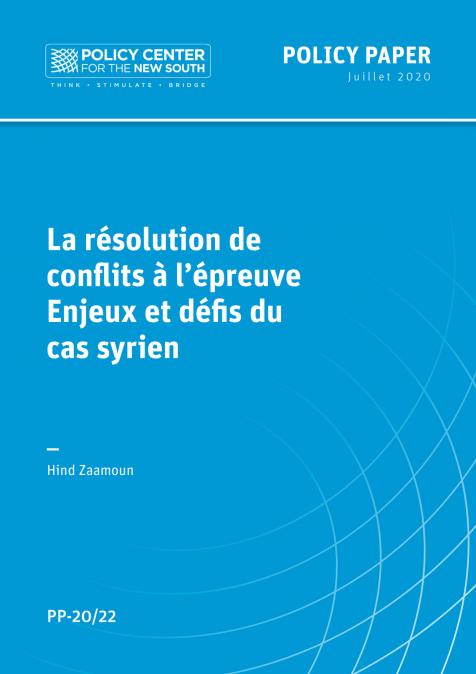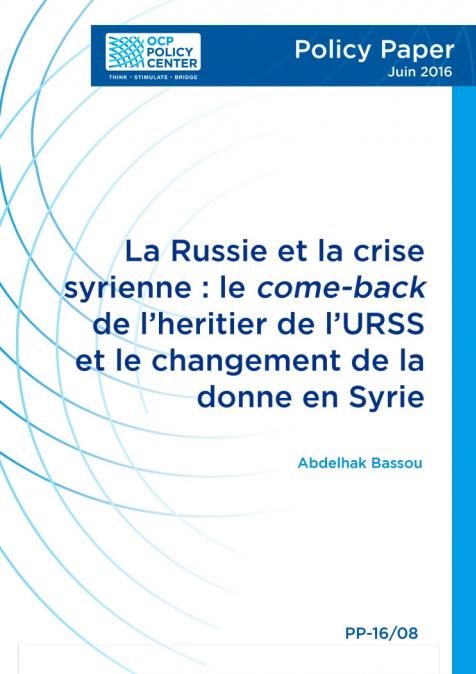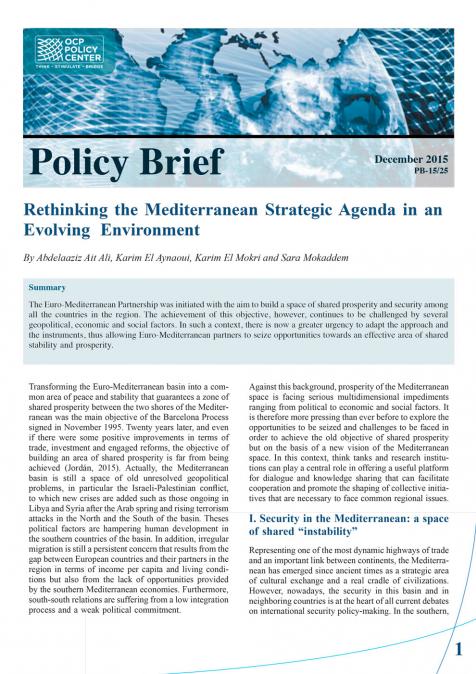Publications /
Policy Paper
Ce Papier a pour objet de considérer le blocage que connait le processus de résolution des conflits, en prenant la Syrie comme cas d’étude. Il s’agira de mettre l’accent sur les changements instaurés par le nouvel ordre global dans les zones de conflit, avant d’approfondir la réflexion sur les retombées et les limites sur le plan pratique. Pour se faire, l’analyse se focalisera sur l’étude de la transformation des conflits et des nouveaux défis et dysfonctionnements initiés par le nouveau contexte multipolaire. Parmi eux, l’inefficacité et la défaillance du projet libéral, incapable de répondre aux nouvelles dialectiques de guerre. L’objectif ultime étant de réfléchir à la manière dont on pourra adapter le processus de consolidation de la paix. L’étude est basée sur les résultats d’un travail de terrain réalisé - dans le cadre d’un projet de recherche au Liban et en Turquie - auprès de membres de la société civile syrienne et de différentes organisations internationales et locales impliquées dans le travail en Syrie.









